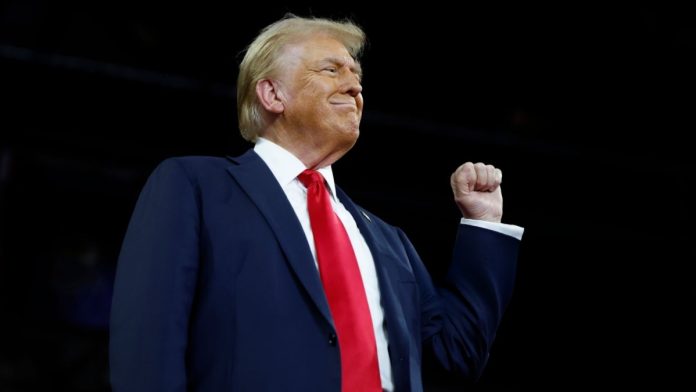US President Donald Trump has announced a “monumental” investment worth up to $500bn in developing AI infrastructure – led by OpenAI, Oracle and SoftBank.
The trio will be forming a new Texas-based joint venture, titled Stargate, that will begin building out projects for AI. The company will start with an initial $100bn investment round to build AI data centres, but the total investment could be worth five times that figure.
“This infrastructure will secure American leadership in AI, create hundreds of thousands of American jobs, and generate massive economic benefit for the entire world,” said OpenAI in a statement.
OpenAI, Oracle and SoftBank, alongside MGX, will act as initial equity funders of Stargate. Japanese investment giant SoftBank will have financial responsibility and the firm’s Chief Executive, Masayoshi Son, will act as Chair.
Arm, Microsoft, NVIDIA, Oracle and OpenAI are the key initial technology partners.
Trump, who described the news as a “resounding declaration of confidence in America’s potential under a new president”, also revoked former President Joe Biden’s executive order to establish guidelines for Generative AI during his first day in office.
The Biden-era order required developers, such as OpenAI, to share safety test results with the government. Furthermore, it directed the National Institute of Standards and Technology to author guidance to help companies identify and correct flaws in models, including biases.
News of the investment comes as across the Atlantic, UK Prime Minister Keir Starmer last week promised to “unleash” AI in a bid to make Britain a world leader in the emerging technology.
On the same day as the StarGaze announcement, the UK government unveiled “Humphrey”, a suite of Generative AI tools designed to “streamline public services”.
Is this the right bet for America?
Despite the optimism from President Trump, some experts have questioned if the focus of the investment in building out AI infrastructures, such as data centres, is the right option.
Speaking to the BBC World Service, Gary Marcus, Author of Taming Silicon Valley, said: “In my personal [opinion], large language models are not the final answer to AI. They’re problematic because they’re unreliable and they’re very easily misused to make misinformation.
“I think a more energetic bet on new kinds of research might actually be better in the long run.”
Marcus also noted that China, the US’ great rival in the AI arms race, has largely “caught up” on the development of large language models.
Ahead of his exit from the Oval Office, Biden brought in a rule restricting the sale of advanced chips to locations that pose a national security risk to the US and China was a notable omission to the list of 18 key allies not impacted by the restrictions.





